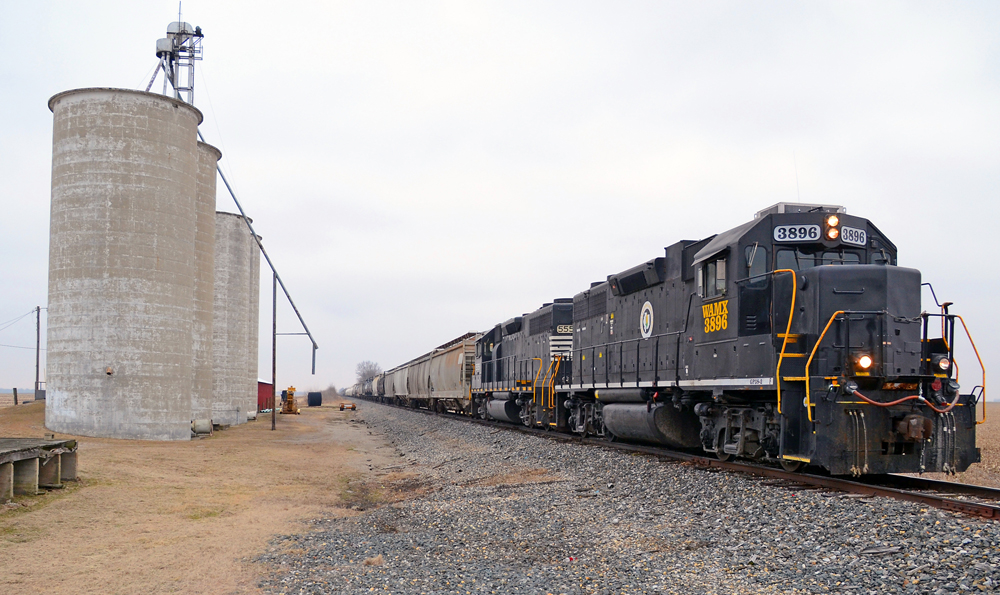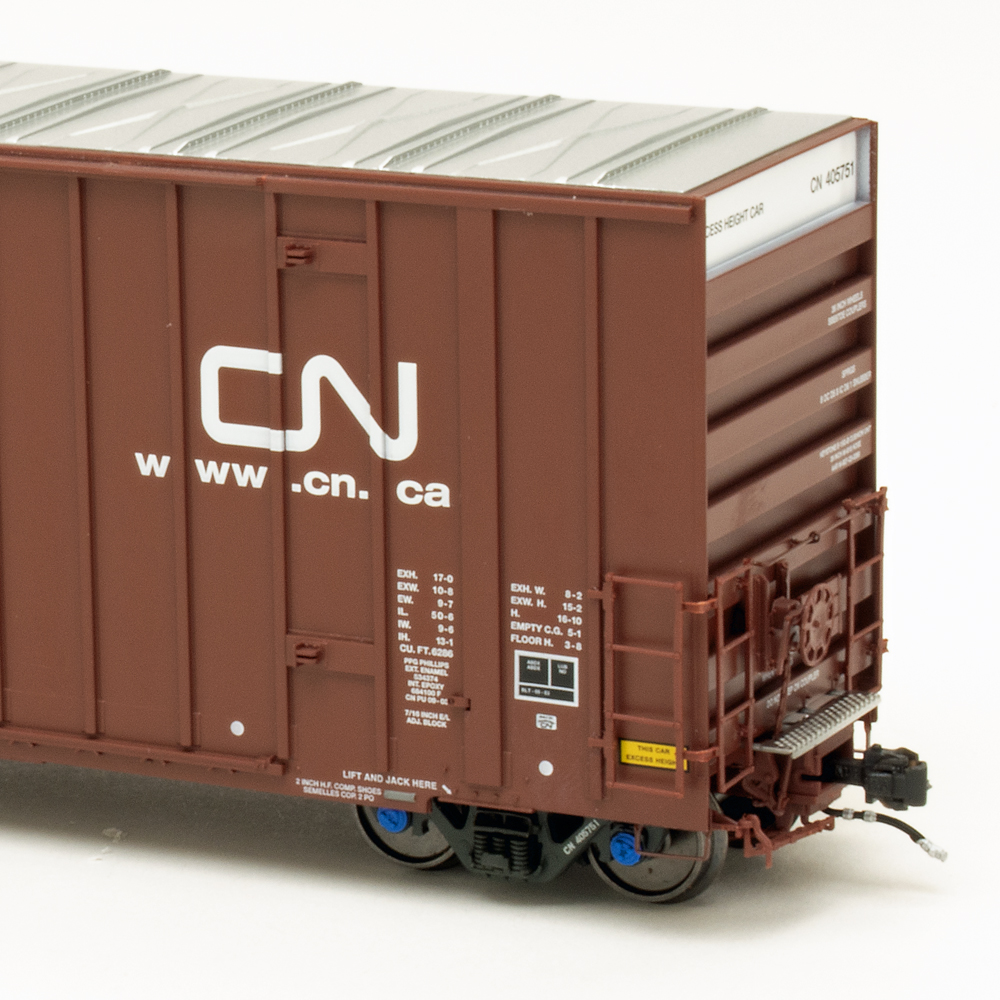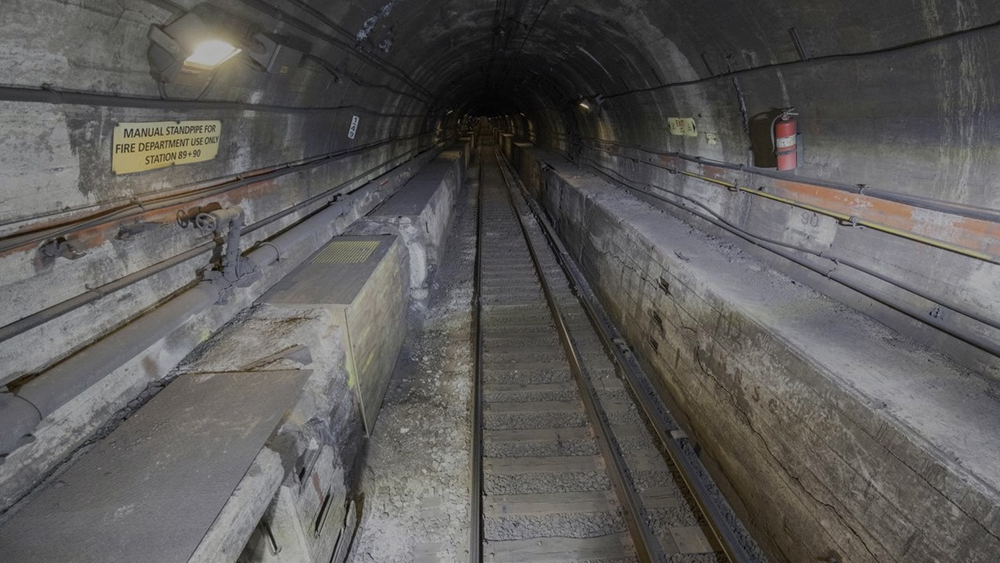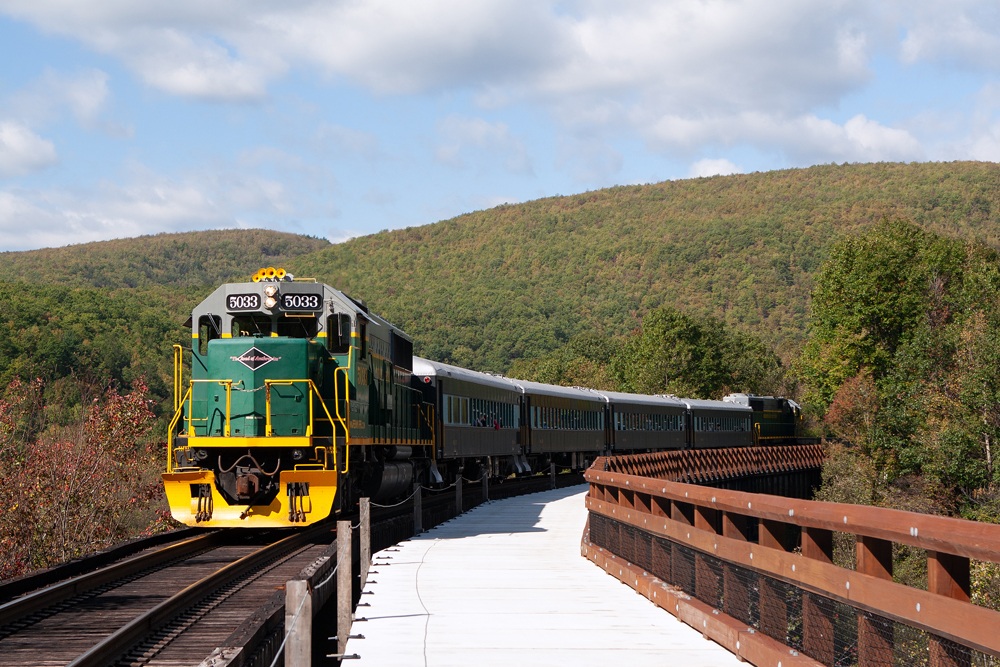“That number is based on historical numbers from CSX,” Watco Vice President of Commercial Carla Ewing tells Trains. “The highest number I have seen from past years is around 25,000 cars. That’s the goal for me and my people to get back to.”
It looks reachable based on what the new short line has done so far. Ewing says the railroad had moved around 11,000 cars by the end of February.
“People are just starting to know our name out there,” she said. “We’re knocking on the door and introducing ourselves and asking if we can help.”
The Decatur & Eastern Illinois began service last September on former Baltimore & Ohio tracks that run east from Decatur, to Hillsdale, Ind., and tracks former New York Central tracks that run south from Vermillion Grove, Ill., to Terre Haute, Ind. At both Hillsdale and Terre Haute, the short line interchanges with CSX. The east-west and north-south segments intersect at Chrisman, Ill.
At Decatur, where big customers are Archer Daniels Midland and Tate & Lyle, Decatur & Eastern Illnois interchanges with Norfolk Southern and Canadian National. The short line serves both ADM’s east and west plants, accessing the east plant on trackage rights over CN.
Other interchange takes place in Tuscola, Ill., with Union Pacific, and at Metcalf, Ill., with Eastern Illinois Railroad. At Tuscola, the D&EI serves chemical companies Equistar, Buckeye, and Cabot, as well as another large ADM facility. At Metcalf, the short line hands off unit trains to the Eastern Illinois for the ADM facility in Oakland, Ill.
“This is a pretty exciting place to be right now,” Paris, Ill., trainmaster Matt Nicol tells Trains while giving a tour of the Paris area. “We have big plans to do some big things.”
In Paris, the short line serves three customers on the south side of town. Milk Specialties, a pet nutrition products company, and Cadillac Products Packaging, are served three days a week on Monday, Wednesday, and Friday. Pretium Products, another packaging company, gets service on Tuesday and Thursday.
The big player in town is Cargill, which is switched six days a week. Chad Stevens, supply chain planner at Cargill’s Paris plant, said he is pleased with the new short line’s performance.
“Their customer service group is awesome to work with,” Stevens says. “And they’re very quick to act on something. They’ve bent over backwards to make sure they have a crew for us.”
Ewing says the railroad is attempting to win back some business that may have been lost to trucks in the past. A new online shuttle service is being started to move 15- to 20-car shipments of corn and soybeans for elevators along the line. The first customer contract for that service has been signed, she says.
Traffic on the line includes local jobs based in Paris, Decatur, and Tuscola. There are also a pair of road jobs scheduled to run seven days a week between Decatur and Paris, and Paris and Terre Haute. The railroad also hosts unit trains, with the busiest time in the fall during the grain harvest. Road trains between Paris and Decatur typically swap crews at Chrisman.















I believe such operations will be major growth areas now since the railroads will be losing more coal business. The Class 1’s will be mostly single point to point bulk movements of various cargo brought to them by the Class 2’s and 3’s. It is one of the bright spots and hope in the rail industry to really capture more domestic commodities.
As a former employee at Decatur, I am very glad to see this line come back to life The bottom nearly fell out when T&L bought A E Staley, and then got their own locomotive for in-plant switching. Crews shrank and we clerks were all relocated to Jacksonville.
That’s a great point John Barlow.
Nearly all big companies have a tough time dealing with small stuff. They have much higher operational costs and can not profitable service small to moderate customers. The class 2 & 3 rails, with smaller volumes, are simply more able to respond to service requests. This is a good thing.
I’m guessing that D&EI’s dozen or so customers now enjoy several more Class 1 routing options that may be priced more competitively than when CSX was operating these lines.
Oh and by the way these shippers are still reliant on CSX and other Class 1s for part of the line haul. Yet they’re still apparently happier than when the Class 1 was providing the origin or terminating end of the shipment. Maybe not completely happy. But happier. And happy enough to not completely give up on rail and switch to trucks.
Maybe one kind of carrier is good at one kind of thing and another kind of carrier is good at another complementary thing.
Except that very similar stories of renewed carload traffic growth when a marginal Class 1 line is spun off have been happening for quite some time now, predating even the PSR craze. Happens with BNSF spinoffs too, and they’re not fully embracing PSR yet.
Must be some other reason for this success. Don’t you think?
Great news! Make good on where CSX failed to provide reliable service
Very happy to see good progress on the old B&O and NYC. It’s fertile territory for growth. Congrats, Watco!
So that pretty much sums up CSX issues. They stopped asking.
Stupid railroad, don’t they know that PSR discourages such things?